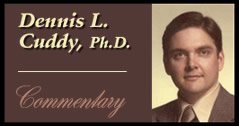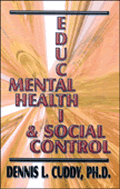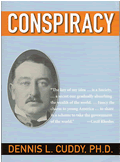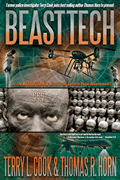COMMON CORE
PART 11
By
Dennis L. Cuddy, Ph.D.
November 1, 2015
NewsWithViews.com
[Note: In the 1968 Democratic presidential primary campaign, Hubert Humphrey said one of the most devastating ads opponent Gene McCarthy used against him was the slogan "The People Against Humphrey." Therefore, when the Republicans choose their candidate, they should use the slogan "(Candidate's name) and the People Against Hillary Clinton's Radical Liberal Agenda."]
Rhodes scholar David Coleman's intent is to align his College Board SATs to CC (see THE NEW YORK TIMES, March 5, 2014).
In Coleman's English portion of the SAT, challenging words like "depreciatory" have been removed to align with the lower standards of CC. So if CC is not about higher standards, what purpose does Coleman serve? In the past, parents have been able to opt out of faddish education reform movements (e.g., Outcome-Based Education), but with Coleman aligning the SATs with CC, even private, religious, or home-schooling parents will have to align their assessments with CC if they want their children to score well on the SATs and get into a good college.
But
CC isn't just about English, math, history, etc. It is also about changing
values. For example, the mother of an 8-year-old girl in Louisiana said
her daughter had been assigned homework about adultery, and the teacher
said she got the assignment from CC materials for third graders (Scripps
Media, October 20, 2013). CC is also about data collection. In "Push
Against CC Gains Momentum" (EDUCATION REPORTER, May 2013), one
reads: "CC gives unprecedented access to students' personal information
to schools and third parties....The Obama administration made changes
to the Family Rights and Privacy Act, broadening the collection of students'
information and sharing it with other agencies. This information will
not only be available to schools, but also to researchers and private
companies....'Turning massive amounts of personal data about public
school students (over) to a private corporation without any public input
is profoundly disturbing and irresponsible," the executive director
of the New York Civil Liberties Union told the DAILY NEWS. The Electronic
Privacy Information Center in Washington is suing the
U.S. Department of Education in an effort to stop the illegal collection,
storage, and sharing of student data (3-13-13)."
Some states have had second thoughts about CC and have developed their own standards and assessments. Unfortunately, they often still align them CC so their high school students can score well on the SAT which is align with CC.
At this point, you may be wondering what is so bad about the CC assessments. Sandra Stotsky and James Milgram were members of a national validation committee asked to sign off on CC in 2010, but they did not, with Stotsky criticizing the English/language arts standards and Milgram characterizing the methods for solving math problems as convoluted. As an example of CC's convoluted math, the simple addition of 29 plus 17 to equal 46 becomes the following: 29 is changed to 20 plus 9, and 17 is changed to 10 plus 7. The 20 and 10 are added to make 30, and the 9 and 7 are added to make 16. The 16 becomes 10 plus 6, and the 10 is added to the 30 to make 40, which is added to the 6 to make 46.
Stotsky explained that the CC standards are really skill sets that will lower the academic level of what 70% of students study, replacing a good deal of classical literature with informational texts. Concerning math, child clinical psychologist Dr. Megan Koschnick explained that CC's practices require students to "reason abstractly" beginning in kindergarten, but she pointed out that children cannot engage in abstract thinking until age 11 or 12! In "Making Math Education Even Worse" (THE WALL STREET JOURNAL, August 5, 2014), National Academy of Sciences award-winning University of California at Berkeley math professor emeritus Marina Ratner wrote: "The Common Core standards were several years behind the old (California) standards....(The) requirement of visual models and creating stories is all over the Common Core.
The students were constantly told to draw models to answer trivial questions such as finding 20% of 80....This model-drawing mania went on in my grandson's class for the entire year, leaving no time to cover geometry and other important topics....The most astounding statement I have read is the claim that Common Core standards are 'internationally benchmarked.' They are not. The Common Core fails any comparison with the standards of high-achieving countries....They are lower in the total scope of learned material, in the depth and rigor of the treatment of mathematical subjects, and in the delayed and often inconsistent and incoherent introductions of mathematical concepts and skills....The Common Core standards will move the U.S. even closer the bottom in international ranking."
And New York State's 2013 high school principal of the year Carol Burris reported that as a result of CC, "We see kids (who) don't want to go to school anymore." Regarding CC math, Ms. Burris remarked: "I fear that they are creating a generation of young students who are learning to hate mathematics" (THE NEW YORK TIMES, February 17, 2014).
|
|
If you look at George Washington University's Center for Education Policy report in the February 10, 2015 "Compendium of Research on the Common Core State Standards" (at www.cep-dc.org), you will see that in an evaluation of 60 pieces of research used to support CC, there is no evidence to support the claim that CC standards will improve student achievement.
The beauty of the American educational system in the past was that the 50 states were like 50 laboratories. And if one state developed new teaching methods or activities that improved academic achievement, other states could voluntarily adopt them. However, there was no one-size fits all, top-down directed, standards-based assessments such as CC has, and which Americans should reject.
� 2015 Dennis Cuddy - All Rights Reserved
Click here for part -----> 1, 2, 3, 4, 5, 6, 7, 8, 9, 10, 11,















 Share
This Article
Share
This Article







